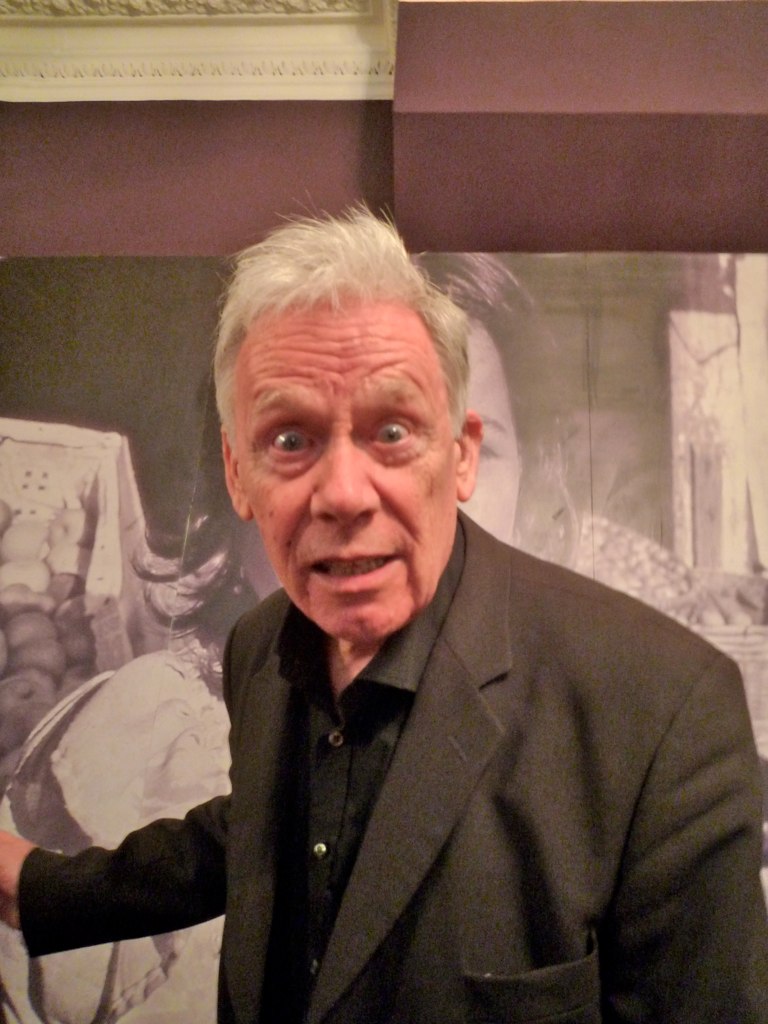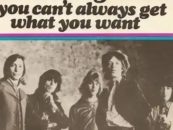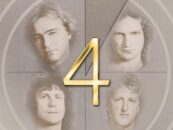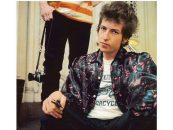Herbie Flowers, Prolific Bassist for Bowie, Elton, Reed, Nilsson & 3 Beatles, Dies
by Best Classic Bands StaffHerbie Flowers, the British bassist who contributed to hundreds of sessions for such stars as David Bowie, Elton John, Lou Reed, T. Rex, Harry Nilsson and three Beatles, among many others, has died. His passing, on September 5, 2024, at age 86, was confirmed by England’s Esoteric Recordings and David Bowie News in Facebook posts. A cause has not yet been reported.
Flowers’ bass lines included some of the most familiar in rock, among them the prominent, defining bass part in Reed’s “Walk on the Wild Side,” Nilsson’s “Jump in the Fire,” Melanie’s “Candles in the Rain,” David Essex’s “Rock On” and Bowie’s “Space Oddity.” He can be heard on Paul McCartney’s Give My Regards to Broad Street, George Harrison’s Somewhere in England, Gone Troppo and Brainwashed, and Ringo Starr’s Stop and Smell the Roses. Other credits include John’s Madman Across the Water, Tumbleweed Connection and A Single Man albums, and recordings by Al Kooper, Olivia Newton-John, Bryan Ferry, Cat Stevens, Roy Harper and others.
On September 16, McCartney wrote, in tribute: “Just heard that Herbie Flowers has died. That’s such sad news. He was an amazing bass player, a really funny guy, and a great person. We ran into each other in the ’60s, and it was always a TOTAL pleasure. Sending sympathy and love to his family. Thanks, Herb – you were a special man.”
In addition to bass, Flowers played tuba, which can be heard on Camel’s Nude album and other recordings.
Watch Flowers speak about his work on Bowie’s “Space Oddity”
Brian Keith “Herbie” Flowers was born May 19, 1938, in Isleworth, Middlesex, England. He began playing tuba at age 18 while serving in the Royal Air Force, and subsequently took up the acoustic bass and then electric bass, buying his first Fender electric during a stop in New York in 1960. At first, Flowers played mostly jazz, but upon returning to civilian life in the U.K. he found studio work with such notable producers as Mickie Most, Shel Talmy and Tony Visconti, primarily on rock recordings. He became a member of the band Blue Mink (“Melting Pot”) in 1969, the same year he contributed to Bowie’s self-titled second LP, as well as the hard rock band Rumplestiltskin.
His participation on Reed’s Transformer album in 1972 resulted in the American’s best known song, “Walk on the Wild Side,” largely built upon Flowers’ bass. Flowers also worked often with Marc Bolan of T. Rex on the latter’s solo releases and contributed to sessions starring Roger Daltrey, Cliff Richard, Steve Harley and more. He co-founded the band Sky in 1979.
Flowers also released some music under his own name, but he did not click as a solo performer. In recent years, Flowers returned to his first love, playing jazz.
Listen to Lou Reed’s “Walk on the Wild Side,” featuring Flowers’ bass part
Related: Musicians we’ve lost in 2024
- Oasis Tour Opener Reunites Noel and Liam Gallagher - 07/04/2025
- Foreigner to Release ‘4’ Deluxe, as Lou Gramm Joins Tour - 07/04/2025
- US Folk Music 1963-1969 4-CD Set Coming - 07/03/2025







6 Comments so far
Jump into a conversationA standout bass player.
Man he got around,didn’t he?
Prolific as well as revered.
When we’d see his name on
an album cover,we’d listen for
his style signature stamp
when that particular song played.
With all his greatness,the one that
got to me the most was
Nilsson ‘Jump into the Fire’
all of the guitars locomotion
contained within that song
I’d also like to read or hear
what else he had to say
about those he played for
or alongside,
beginning with
“Bowie’s glass eye”…
Also wrote “Grandad” for Clive Dunn!
“Jump Into the Fire” was epic. It’s like the bass version of “Limbo Rock”. “How lowwww can you gowwww”.
His double tracked bass is what MADE “Rock On”. And a much less known favorite of mine from Herbie is Ian Gomm’s one hit, “Hold On”. And detuning that bottom string on “Jump Into the Fire” is possibly – okay, PROBABLY – the coolest sound created by a bass guitar in the history of rock.
Herbie was so good with T. Rex, an amazingly talented bass player